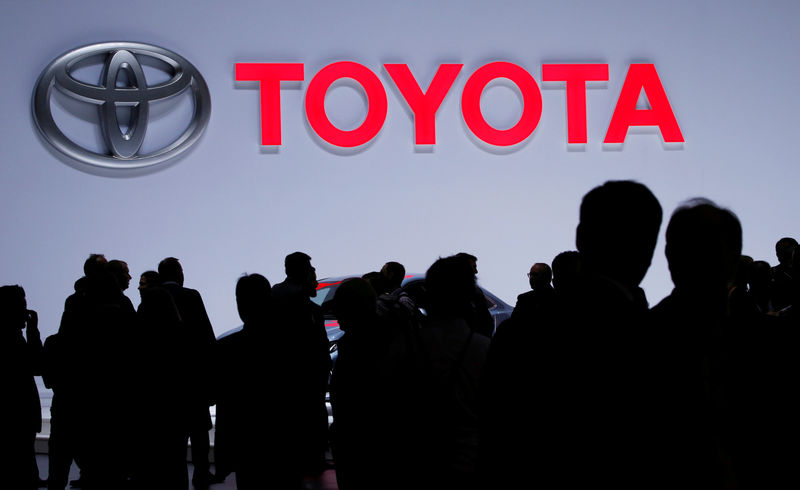BEIJING (Reuters) - Toyota Motor Corp will supply key hydrogen fuel-cell parts to Chinese automakers FAW and Higer Bus, as the Japanese automaker tries to promote the technology it continues to view as superior to rapidly spreading battery-powered vehicles.
Toyota is betting the move, part of a broader offensive, will help push rapid adoption of fuel-cell technology in China. Fuel-cell cars use a stack of cells that electro-chemically combine hydrogen with oxygen to generate electricity to propel the vehicle, with water being the only byproduct.
Toyota, along with peers Honda Motor Co Ltd, South Korea's Hyundai Motor Co and Germany's Daimler AG (DE:DAIGn), has been trying to promote the technology for nearly two decades. But efforts have been hampered by the technology's high price tag and lack of refueling infrastructure.
"Toyota hopes to cooperate with more Chinese commercial vehicle companies," Toyota said in a statement on Friday, to "promote the application and popularization of hydrogen fuel cell vehicles (FCV) in China."
The Japanese carmaker will supply fuel-cell components to China FAW Group Corp Ltd [SASACJ.UL] and Higer Bus Co, with Shanghai Re-Fire Technology Co acting as local supplier.
Re-Fire will be system integrator and develop fuel-cell powertrain technology that the Chinese automakers can use to make hydrogen buses, Toyota officials told Reuters.

Similarly, Toyota in April said it had started supplying fuel-cell parts to Chinese commercial vehicle makers Beiqi Foton Motor Co Ltd and Beijing SinoHytec Co Ltd.